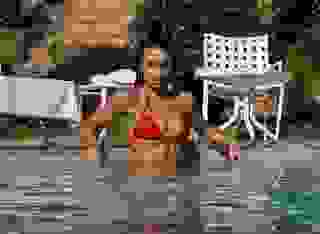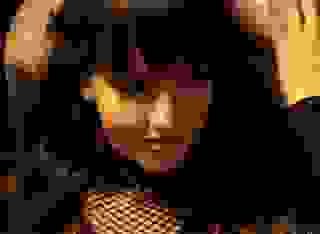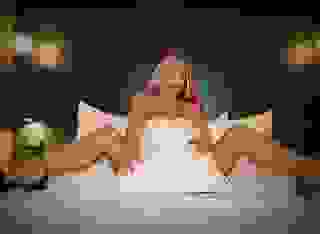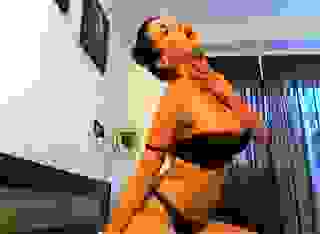Note: You can change font size, font face, and turn on dark mode by clicking the "A" icon tab in the Story Info Box.
You can temporarily switch back to a Classic Literotica® experience during our ongoing public Beta testing. Please consider leaving feedback on issues you experience or suggest improvements.
Click here"You think. . ." I sputtered, aghast. "You think she starves herself, that she cut her own wrists. . .?"
Her eyes narrowed at that. I realized that she hadn't noticed. But her surprise didn't put her off balance for long. "Don't be naïve, Norm. This kind of thing is actually pretty common. Most attempted suicides are cries for attention. Like I said, there can't be anything wrong with that girl's brain chemistry, so she's doing this by her own choice. Have you considered that maybe she's latched onto you because she thinks you're more gullible than the rest of us?"
"No," I said firmly. "No. She's hurting. I know that." And I don't appreciate the implications of inferior judgment, thank you very much, I thought.
Stansy shrugged. "Well, just keep it in mind. And thanks for the advice about my son."
I took the hint that the conversation was over. I went out and sat at the table to eat breakfast quickly so that I could get my turn at the computer. I tried Wikipedia first on "utility", but came up only with the economics and philosophy pages. Moving to AskMarkov and trying "utility genemod", I came up with a bunch of garbage results on the first page, but one result on the second page caught my eye. It was a pdf of a research paper written by a Dr. Kelly McNally, dated 1985. Only the abstract was available, so I began to read.
The genetic basis of the risk-reward mechanisms of the brain have been well understood for nearly a decade, but this study focused on the philanthropic impulse and its associated feedback mechanisms in mirror neurons and the brain's associated risk-reward centers. A particular set of neural pattern recognition clusters in the brain have been identified which appear to drive this mechanism, and the number and complexity of pattern recognizers devoted to this task shows correlation with the individual's personal level of empathy, compassion, and generosity. A better understanding of the philanthropic impulse and its heritable traits may one day allow its deliberate focus and enhancement in engineered humans, greatly enhancing an individual's socioeconomic utility.
I read and re-read the passage several times to make sure I understood. This researcher had been working to discover what made people want to make others happy. It was intriguing, but I wondered why it had come up in my search. I tried finding the word "genemod" on the page and discovered it buried in a set of notes about the article. That note mentioned a paper written my McNally a few years later, titled "New Horizons in Designer Genemods", where she had reported on additional research in this area.
I blew out a breath as I sat back. Was it just a coincidence that my search terms had dropped me here? I tried a search for the second article and came up empty. Like most geemo research, if it had been on the web at one point, the FCC had forced a takedown. The possibilities tantalized me, but I didn't think I could get any further on it today.
I closed down the browser after wiping the search history. Stansy had come out for breakfast in the meantime and sat next to Stan, speaking in low tones. Tilly never showed, but that was expected. Wendy had told me that she never ate before lunch.
Nissi was alone on the sofa, so I sat next to her and put my arm around her shoulder. She snuggled against me and we sat, enjoying the closeness. I was only barely aware of what we were watching, some kind of talk show. I only had a few minutes there before Sasha came down to find me. "Get your street clothes on," she said. "We're going shopping."
We made the usual stop at the food bank and bought a few items of clothing and gardening tools from a department store. I expected we would head home from there, but Sasha had one more stop planned.
"Do you know how to shoot a gun, Norm?" she asked me.
"Huh? No," I said. "I've never owned one."
"Well, you're going to learn," she said. I shot her a questioning glance, but she did not elaborate. A few minutes later, we pulled into a tiny parking lot behind a gun store in the downtown area.
Sasha got out and headed for the door. "Uh, is this a good idea?" I asked. I stood holding the car door open. I wasn't sure about having a gun and was even less certain I wanted my new identity under scrutiny.
"Yes, it's fine," Sasha said. She walked back to me and spoke low. "I got a gun shortly after I got involved with the agency. Don't be a baby."
I barked a laugh and followed her inside, shaking my head as I went. Sasha explained to the shop manager that I was a complete newbie, but that she was worried about the area I moved into and thought I should have a weapon with some stopping power. "I was thinking maybe a Colt 1911," she said.
"Good choice," the man said, and brought out a very plain-looking black pistol. "This one is chambered for .45 ACP. Real simple to use, smooth recoil and all the stopping power you could want."
"That'll do nicely. Why don't we get started on the paperwork?"
Twenty minutes later, Sasha and I left the store. We would come back once the waiting period was up to pick up the gun. My gun. Back in the car, I was feeling confused and uneasy. "I find the timing of all this a little suspect," I said. "Do you think we're in some kind of danger since the FBI raids?"
"Call it a feeling," Sasha said, "but I think we are headed for an escalation. The McCain administration is tired of seeing genemods slip through its fingers. Please don't mention this to the others. They--"
"They have enough to worry about," I finished. "Are you saying that if the feds show up, you want me to go down shooting? Wouldn't prison be preferable to dying?"
"Well, we'll see," Sasha said. She sighed, "Just between you and me, I'm a bit concerned about food. My agency contact assured me that they would continue to supply us for the immediate future, but we should start preparing for the worst. I read a paper once about boosting output in a greenhouse by increasing the CO2 in the air. I don't know if it will be enough to make up for the loss of agency shipments, but want you to look into it."
"I can do that," I said.
When we got back, Tilly was seated at the dining table in the basement. She stood up when she saw me. "Ready to work, Norm?" she asked. Her customarily dull voice had a tinge of lightness to it and I saw that she was already dressed to go out.
"Sure," I said, surprised but gratified. I had intended to start on the research that Sasha had given me, but that could wait.
We resumed our work from the day before. I let Tilly settle into it first before I started in with the questions. "I looked up your model," I said, "and I found a paper by a Dr. Kelly McNally and her studies on the philanthropic impulse."
Tilly looked at me. "You know about Kelly?" she said.
"Not much. Do you know her?"
She nodded, getting a faraway look. "She was my mother. Not my biological mother. That would be a breach of ethics. She designed my model and took care of me growing up. She . . . " I saw the beginnings of a smile, but it faded rapidly, her face clouding over.
Stay with me, Tilly, I thought. "Here, you missed that spot over there."
Tilly shook her head slightly and scooped up some fertilizer to spread. The pain etched into her features smoothed away after a few moments. "Are you ready to tell me yet?" she asked.
"Tell you what?"
She grunted as she scooped another shovel full. "Tell me what was bothering you yesterday, and why you lied about it."
Now it was my turn to pause. "I, uh. . . I don't know if I can tell you."
"You're worried what I will think of you. Did you do something wrong?"
I stared at her. "How do you do that? How do you know when someone is lying, what they're feeling?"
She sighed and shrugged, as though the question were unimportant. In my weeks of observing and interacting with her, I can come to understand that she avoided strong feelings of any kind, whether positive or negative. "The data points are all there. I see the micro-expressions on your face, see and smell your perspiration. I can hear the hitch in your breathing and the quickening of your pulse."
I realized that my mouth had dropped open and I casually closed it. "You saw and heard all that?"
"Yes."
I waited, but she didn't say more. Tilly's shovel crunched into the pile of fertilizer. "So yesterday . . .?"
"I got angry with you yesterday because I've come to trust you, and it was the first time you had lied to me. I've stayed numb for so long and I'm not used to those kinds of feelings." She sighed. "You don't have to tell me right now. I can see how much it bothers you."
"If I tell you," I said, "can you promise to keep it between us?"
"I promise," she said without hesitation.
"Okay, just give me a moment. Let's finish this planter and start on the next." We finished the job and Tilly hauled over the next bag while I gathered my thoughts. "I guess I should tell you about my sister first," I began.
"Sharon?"
I nodded. "She was born in 1992. She was a genemod, a Gena model and fourth gen like you. You're probably familiar with that one." Tilly nodded. Gene and Gena come from the term 'g factor' referring to intelligence and cognitive abilities. "My parents were so excited when they heard about the model. This was less than a year before designer babies were outlawed, so they were lucky to have acted so quickly. G's were expensive, but my family was well off and had good credit, so they flew to a clinic in Dallas. Nine months and change later, my mom gave birth to Sharon. She'll be twenty-one later this year."
"She's my age," Tilly said.
I nodded. They would have to be close in age if Tilly was fourth gen. "It was strange, growing up with a sibling like that. Everything came so quickly and naturally to her. She had a fifth grade vocabulary by her first birthday and was doing algebra before she was two. I must have been about nine when I realized that she had passed me up, intellectually. She understood concepts that my juvenile brain couldn't wrap itself around. She soaked up knowledge like a sponge. Our parents put her through an accelerated online education program and she graduated high school about the time most kids are starting kindergarten. Then they started casting about for what to challenge her with next. I mean, she should have been attending university classes, but despite her intelligence, she still had some growing up to do. They settled on just throwing anything and everything her way in the form of textbooks, journals, whatever. Physics, math, literature, biology, economics, most of it at university level. After a few years, special university programs began to appear for kids like Sharon. At the age of seven, she started classes at MIT. At nine, she was a graduate student, and at 12, she had her first doctorate, was working on her second and had begun postdoctoral research."
"What was that like for you?" Tilly asked.
"Not so great, to be honest. When we were growing up, I kind of did my best to avoid her. I used to call her 'freak' and worse if she didn't take the hint. What made it worse was that she never called me on it. She put up with my spite and my envy, and I think I resented that too. I'm not proud of that part of my life."
I glanced over at Tilly. She nodded expectantly, so I continued. "Then came the Rot, and the Ban when she was thirteen. She was served legal papers by mail, informing her that her citizen status had been revoked until such time as she had submitted herself to a set of procedures to reverse her biotech modifications."
"What was strange was that I was the one she reached out to. I was in my second year at university by then. She called me at least a dozen times, often in tears. I consoled her as best I could but eventually urged her to turn herself in. For all the resentment I had harbored for her growing up, I didn't want to see her hurt. It upset her to hear me say that, even after I explained my reasoning. She stopped calling after that."
"I began to worry that something terrible had happened to her. After a few weeks, the FBI began to tighten the screws, arresting genemods who refused to cooperate with the government's decree. That pushed her over. She did call me then, to tell me that I had been right, and that after she got off the phone with me, she was going to the police station to turn herself in. "
Tilly was still working, but had slowed. I went on, afraid I was going to lose her to her depression again. "They injected her with multiple retrovirus cultures engineered to enter her cells to find and replace her modified DNA. Then they had to physically remove her augmented intelligence. In her case, that also meant destroying over half the neurons in her neo-cortex."
"Oh my God," Tilly said with a gasp.
"It was barbaric," I said hoarsely. "She had been engineered with brain cells that were more compact, so she had a lot more of them and her neurons connected in ways that they couldn't in a normal human. They did their best to disrupt all that extra capacity and efficiency. When they were done with her, she could barely speak. It took over a year for her to regain close to normal functioning. She was on medical leave for a few months, and held out hope that when it was all over, she could resume her post at MIT. But after a while, she gave that up."
"I asked her about it and she tried to explain it to me. It was as if the thoughts she had before were suddenly out of her reach. Concepts that seemed easy to visualize before were now frustratingly difficult to grasp, as though she had just woken up, only she never came fully awake. She still had an IQ in the 120s, and I had heard horrible stories of other mods who fared much worse after being reverted, but she felt useless and weak. I was away at college while she found herself back at home and suddenly expected to live as a normal teenager. It made me realize what an ass I had been to her."
I paused, wondering if I had said enough to satisfy Tilly. I had my answer a moment later. "There's more, isn't there?"
I nodded. "Two years ago, I started making some inquiries and made contact with an agency representative. I volunteered my time working with a large safe house operating out of the basement of a homeless shelter. Last month, I went back home to visit. I hadn't had much contact with Sharon for a few years, and I was shocked by what my parents had to tell me about her. They had kicked her out of the house when they caught her taking crystal meth, and she could barely hold down a job for more than a few months at a time. I asked for her phone number anyway.."
"She said she was living with a couple of friends and didn't seem to want to bring me back to her place, but she was happy to come meet me for lunch. Even though she's only twenty-one, I could see that she had been living hard. I got the impression from some hints that she dropped that she'd been picked up by the police a number of times, though I could only imagine the reason for it. Still, we had a lot of catching up to do and I started to feel more comfortable around her."
My mouth had gone dry as I finally came to it, but I pushed on. "I knew I wasn't supposed to talk about the safe house to anyone, but I thought she would be happy to hear that I was helping genemods escape what had happened to her. When we parted ways, I felt like something was off, but I guess I didn't realize what an angry, bitter person she had become. As soon as I hopped a plane back to the west coast, she phoned the authorities and told them everything she knew. They came looking for me at the university while I was driving home, and one of the staff phoned me to ask what was going on, so I was tipped off. I called my contact at the agency to warn them, but it was too late. Sharon had given just enough info for the feds to find the shelter and detain everyone there. Because of me, twelve genemods were captured, along with the two normals who managed the safe house. The agency picked me up, kept me hidden and got me out of LA a few days later. I'm honestly surprised they helped me at all."
Tilly set her shovel down carefully and walked over to me. "Norm, you couldn't have known your sister would do that to you," she said. She took my hand and held it in hers.
My eyes were burning and my breath hitched. "It doesn't matter," I said. "It was my fault. I broke the rules and people suffered for it."
"You didn't mean for that to happen." She gently stroked the back of my hand with her fingers.
I wiped at the trickle that fell down the side of my nose, smudging dirt on my face. "I deserve to go to prison," I said bitterly. "It should have been me, not them. And I'm such a coward. I've been keeping this inside me for weeks now, terrified that all of you are going to find out what I did and hate me for it."
"You made a mistake," Tilly said. "The consequences were terrible, yes, but you weren't the one who put those people in prison."
"I might as well have," I said. I was a mess, sobbing openly now. Tilly seemed unsure of herself and just held my hand until I had purged myself of my shame and grief. A spike of guilt still twisted in my insides, but sharing my story seemed to have dulled the pain at least.
Tilly began to speak, slowly and haltingly. Her tone was flat and distant and her hand went limp in mine. "Kelly McNally was--is--a cognitive psychologist and a philosopher. She put a group of scientists together from other specialties for a project, funded by private investors. There were geneticists, neurologists, sociologists, even an economist, I understand. Together, they envisioned something no one had ever seen before. A new society, is the way Kelly put it. They drew on Kelly's research into the philanthropic impulse and magnified that effect, along with many other physical and mental enhancements. The idea was to create a human being who would maximize happiness, both for herself and those around her. I was the result of that project."
I felt drained of emotion after my breakdown, but tried to focus on what she had told me. "Tilly, I'm not sure that makes sense."
"I told you before I was broken. I--" Her eyes screwed up and her face contorted in pain. "I'm trying, Norm, but I can't . . .I can't go there." Her voice grew soft and her eyes unfocused. I was losing her.
"Okay, that's okay, Tilly," I said, squeezing her hand. "Don't think about it. Look at me. Come back."
She inhaled deeply and blinked a few times. She put a hand to her head. "I'm sorry, Norm. I wish I could explain, but you see what it does to me. Did you have anything else you needed to ask?"
"Just one question. Are there any others like you?"
She shook her head almost imperceptibly. "No, I'm the only one. Kelly raised me until the Ban, but the team had broken up once human genemodding was outlawed. None of them wanted to go to jail for Kelly's dream. Can we stop now, please?"
"Okay," I said. "I think that's enough for today. Let's pack up and head inside."
I followed close behind Tilly as she went downstairs into the basement. Nock, Stan, Wendy and Stansy were playing cards at the table. Nock looked up first and I saw Tilly stiffen slightly with a sharp intake of breath. Her head and shoulders drooped slightly and the energy seemed to drain from her. I stopped walking and watched her shuffle off to her room. The whole event had been so quick and so strange that I kept wondering if I had imagined it. Was Nock the real problem here? Had he done something to Tilly? The thought disturbed me so much that I turned without a word and slowly climbed the steps to go back upstairs.
I didn't know what I was going to do. My first thought had been to describe to Sasha what I had seen and share my thoughts about Nock, but by the time I reached the top of the stairs, I had rejected that idea. I had very tenuous evidence to be making accusations, and I certainly didn't want to make problems for Nock if he was innocent. Besides, I knew for a fact that the root of Tilly's problem had started before she had come here. I settled on a solution that was both less inflammatory and possibly far more useful.








